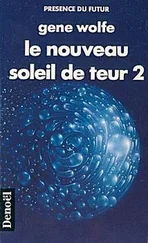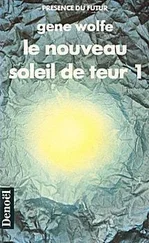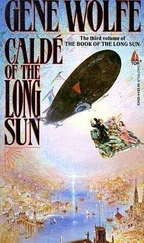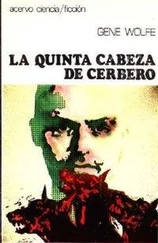Gene Wolfe - There Are Doors
Здесь есть возможность читать онлайн «Gene Wolfe - There Are Doors» весь текст электронной книги совершенно бесплатно (целиком полную версию без сокращений). В некоторых случаях можно слушать аудио, скачать через торрент в формате fb2 и присутствует краткое содержание. Жанр: Фантастика и фэнтези, на английском языке. Описание произведения, (предисловие) а так же отзывы посетителей доступны на портале библиотеки ЛибКат.
- Название:There Are Doors
- Автор:
- Жанр:
- Год:неизвестен
- ISBN:нет данных
- Рейтинг книги:4 / 5. Голосов: 1
-
Избранное:Добавить в избранное
- Отзывы:
-
Ваша оценка:
- 80
- 1
- 2
- 3
- 4
- 5
There Are Doors: краткое содержание, описание и аннотация
Предлагаем к чтению аннотацию, описание, краткое содержание или предисловие (зависит от того, что написал сам автор книги «There Are Doors»). Если вы не нашли необходимую информацию о книге — напишите в комментариях, мы постараемся отыскать её.
There Are Doors — читать онлайн бесплатно полную книгу (весь текст) целиком
Ниже представлен текст книги, разбитый по страницам. Система сохранения места последней прочитанной страницы, позволяет с удобством читать онлайн бесплатно книгу «There Are Doors», без необходимости каждый раз заново искать на чём Вы остановились. Поставьте закладку, и сможете в любой момент перейти на страницу, на которой закончили чтение.
Интервал:
Закладка:
He smiled dutifully.
“There was a woman too that said she was a pilot. You ever hear of a woman that could fly an airplane?”
“Sure,” he said.
“Maybe she was, then. Only she said she was way up above all the clouds, and she didn’t know quite where she was, and she didn’t want to come down through them because sometimes you hit something doing that. So she saw this little bitty hole in the clouds, and lights on the ground, and she went through it, and everything was different.” The man chuckled again. “They used to have the women mixed in with the men, you know, what do some of these guys know? But one of the papers found out about it.” Expertly the man lifted the television from its slanted bracket.
He had put the telephone in his lap. Without much hope, he dialed his apartment.
“Knobs don’t work,” the man said. “Now I gotta see if you got power. Some of the outlets here are bad.”
Somewhere (where?) a telephone rang and rang again.
“You got power, so it’s the main fuse. Power, no light, no sound, it can’t be anything else.” The man whipped out a large screwdriver and began to take the back off the set.
“Hello?” It was a harsh male voice.
“Who is this?” he asked.
“You called me. Who do you want?”
“Lara.”
There was a long pause in which he heard faint music and children’s voices, as though a radio were playing in the next apartment, as though the apartment were by a school (it was not) and all its windows were open in this bitter cold, admitting the sounds of the playground with the snow.
“Lara’s not here. Who’s calling?”
“Tell me who you are,” he said, “and I’ll tell you who I am.”
“I see. Okay, I’ll tell Lara you called. Where are you?”
He hesitated. He wanted to be found, but did he want to be found by this man? Would this man really tell Lara anything?
She had brought the flowers. No, she had sent the flowers, but she had come later; she had even spoken to him on the phone, because it had been Lara, surely Lara, on the phone—Lara forced to use another name. “Lara knows where I am,” he said, and hung up.
“Yup, the main fuse,” the television repairman said. “I’ll have it working again for you in a jiffy.”
For want of anything better to say, he said, “I don’t suppose I could trade it for a color set?”
“Color? You mean colored pictures?”
He nodded.
The man’s face closed like the shutting of a door. In the tone of an adult explaining simplicities to an infant, the man said, “You can’t do that. Look here, the way these things work is that you’ve got a round screen coated with phosphors. When the electron beam hits them, they shine. If it hits them hard, they shine bright. If it isn’t so hard, they’re not so bright. That way you can have white, black, and various shades of gray on your screen. But if you wanted colors, you’d have to have a phosphor dot for, well, every color there is—blue, red, yellow, everything. They’d have to be put on real close together too, without them getting mixed up, and I guess you’d still need the regular phosphor for white. If it was ever built, a thing like that would cost a million dollars.”
He said, “I thought I saw an article that said they had them.”
The repairman tossed the burned-out fuse in the direction of the wastebasket in the corner. “Probably somebody playing guessing games. Or a real little one that some company’s made to show they could do it. I think they’d have to put out their own signal, though. The regular signal wouldn’t work.”
He nodded and lay still for a moment, watching the man put the back on his set. He knew he owned a color television, a GE as bright as Lara’s roses. He knew Lara had sent him the roses. He had sold color televisions, and he had seen Lara. His neck was still stiff from the fall, and it hurt to twist it to look at the roses. He decided he would sit up and hold the vase in his lap for a time, smelling the roses and visualizing how they would look on color television. When he picked up the vase, he saw a roll of bills beneath it.
“All set,” the repairman said, displaying the black and white picture. “I’ll put it back up for you.”
While the man’s back was turned, he grabbed the roll of bills and hid it under the sheet.
“Try out your remote.”
He did, changing channels, turning the set off and on, and raising and lowering the volume. “Works fine.”
“What’d I tell you? It was the main fuse, that’s all. You got a voltage spike, and it blew to protect your tubes.”
Recalling Lara’s fading, shrinking face on the screen, he asked what could have caused such a spike.
The repairman sighed. “Probably some equipment somebody’s hooked up wrong. A hospital’s got a lot, X-ray machines and all that stuff. Big elevators—if you wire them up wrong, they can generate voltages of their own and stick them in the system.”
“I see,” he said. And then, “Thanks.”
When the man was gone, he let his fingers toy with the roll of bills, counting them by touch. Exactly ten. He wondered how big they were, and whether they were all the same denomination. What did they look like? Money here was not like his own money; the reaction of the girl in the map store had proved that, and it had been confirmed by the bundle of money—money meant to be burned—in the Chinese shop. He moved one of the bills until its corner protruded beyond the hem of the sheet and glanced at it. One hundred.
A voice from the television said, “Hello?” and he glanced up.
It was a moment before he recognized his own apartment, but it was all there—his worn couch, the vinyl-covered armchair the store had let him have for thirty-two fifty after someone burned a hole in the right arm with a cigarette, the telephone stand he had positioned to throw a shadow on that hole.
A faint, metallic voice asked, “Who is this?”
The man on the telephone in his apartment was not himself. This man was older than he, big, tough looking, starting to run to fat.
He pressed a button to increase the volume.
“You called me, fella,” the man in his apartment said. “What do you want?”
“Lara. ”
There was a long pause. The big man seemed frozen. Slowly the image faded, replaced by a huge can of dog food. “It’s all meat,” said a new voice. “Give your pet just one can and watch him go for it.”
He turned the volume back down and lifted his knees so that the bedclothes were between his hands and the doorway; the bills were all hundreds, nearly new. None of them was completely new and unwrinkled. He had not seen hundred-dollar bills often, but the old-fashioned scrolling of these seemed familiar and right. The face on each bill was that of a woman, elderly, kindly, and intelligent—a lady who might, he decided, be a teacher close to retirement at some pricey finishing school. A footstep sounded in the hallway, and he thrust the bills under the sheet again.
It was the nurse, smiling and humming to herself as she entered his room. “Good morning, good morning! How are you today? Enjoy your breakfast?”
He nodded.
“Then I’ll just put it right over here on your little table for W.F., all right? How’s the head?”
“It doesn’t hurt much.”
“Well, if you want some aspenin, just ask. I know you can get up and walk around, because you were up so much yesterday—yes, I saw you, naughty boy! So you can come to Group Rec. Dr. Pille will be there today, and we want to show him a whole bunch of sunny faces. I know you haven’t been, so I thought you might like me to tell you about it.”
He said, “What do we do? Play softball?”
Читать дальшеИнтервал:
Закладка:
Похожие книги на «There Are Doors»
Представляем Вашему вниманию похожие книги на «There Are Doors» списком для выбора. Мы отобрали схожую по названию и смыслу литературу в надежде предоставить читателям больше вариантов отыскать новые, интересные, ещё непрочитанные произведения.
Обсуждение, отзывы о книге «There Are Doors» и просто собственные мнения читателей. Оставьте ваши комментарии, напишите, что Вы думаете о произведении, его смысле или главных героях. Укажите что конкретно понравилось, а что нет, и почему Вы так считаете.










